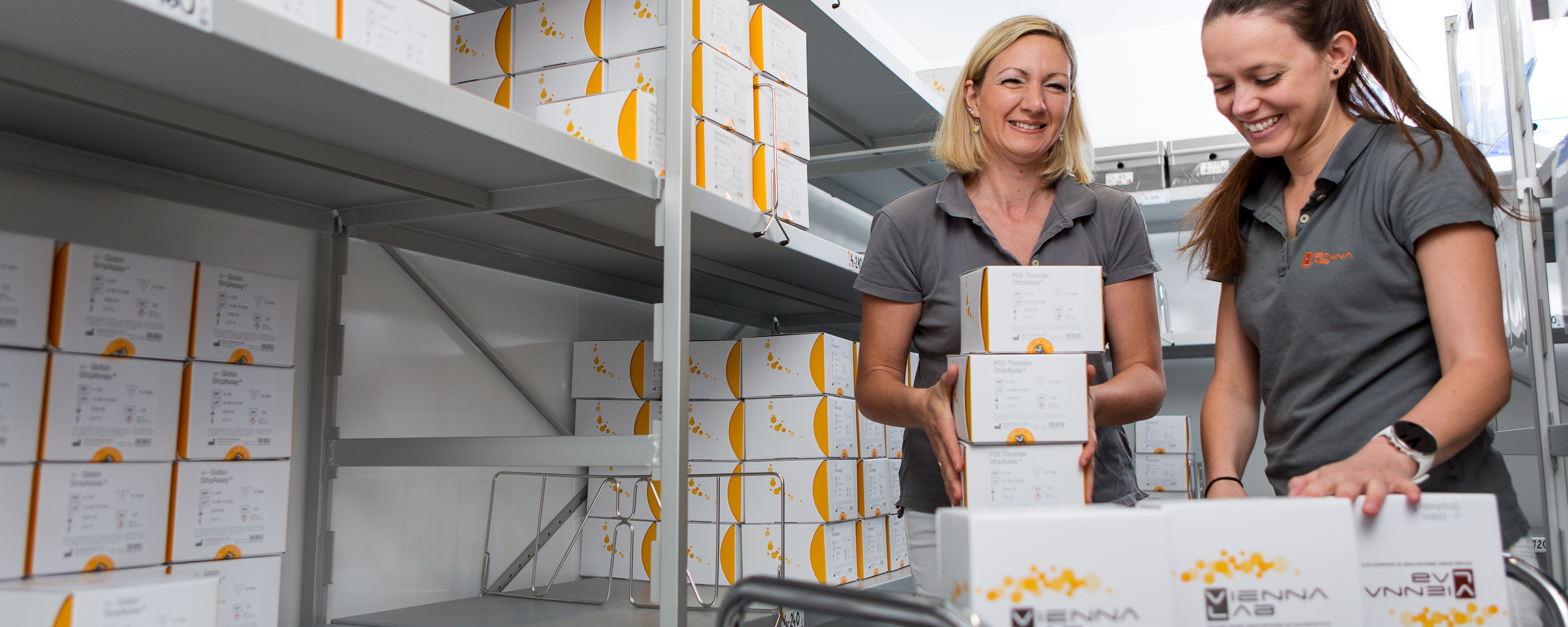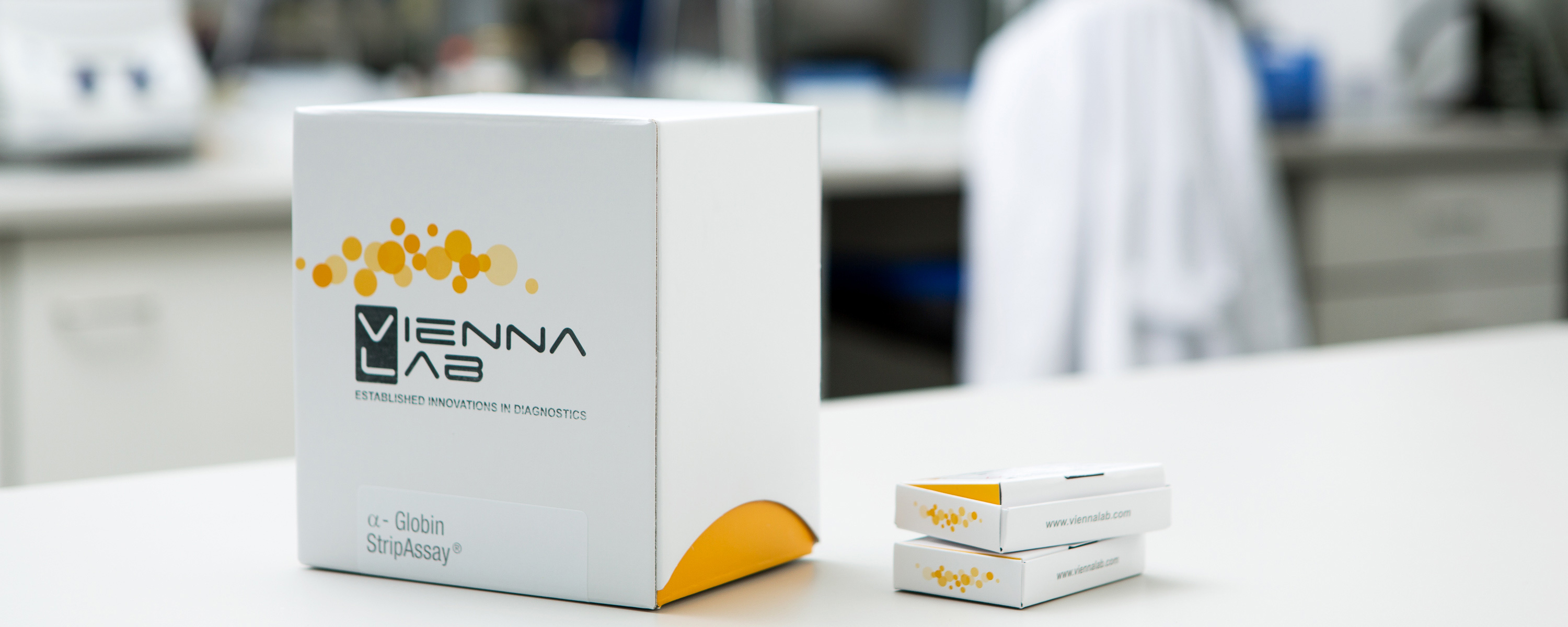Thalassemias are characterized by inherited defective hemoglobin synthesis leading to microcytic, hemolytic anemias. The clinical heterogeneity ranges from asymptomatic to very severe forms requiring regular blood transfusions. Globin StripAssays® detect common thalassemia-causing genetic variants worldwide, and the β-Thal Modifier StripAssay® identifies co-inherited variants known to ameliorate severity of beta-thalassemia.
Thalassemia
- Severe thalassemia is life-limiting and poses a major public health burden in Mediterranean countries, Africa, the Middle East, South-East Asia, and the Indian subcontinent.
- Mutations in the alpha- and beta-globin genes lead to reduced or abolished globin-chain synthesis or cause structurally abnormal hemoglobin.
- Genetic analysis is required to confirm the clinical diagnosis and is indispensable for genetic counseling.
- Apart from bone marrow transplantation, no ultimate cure is available up-to-date. However, identifying favourable genetic modifiers in patients help to predict the severity of beta-thalassemia phenotypes.








